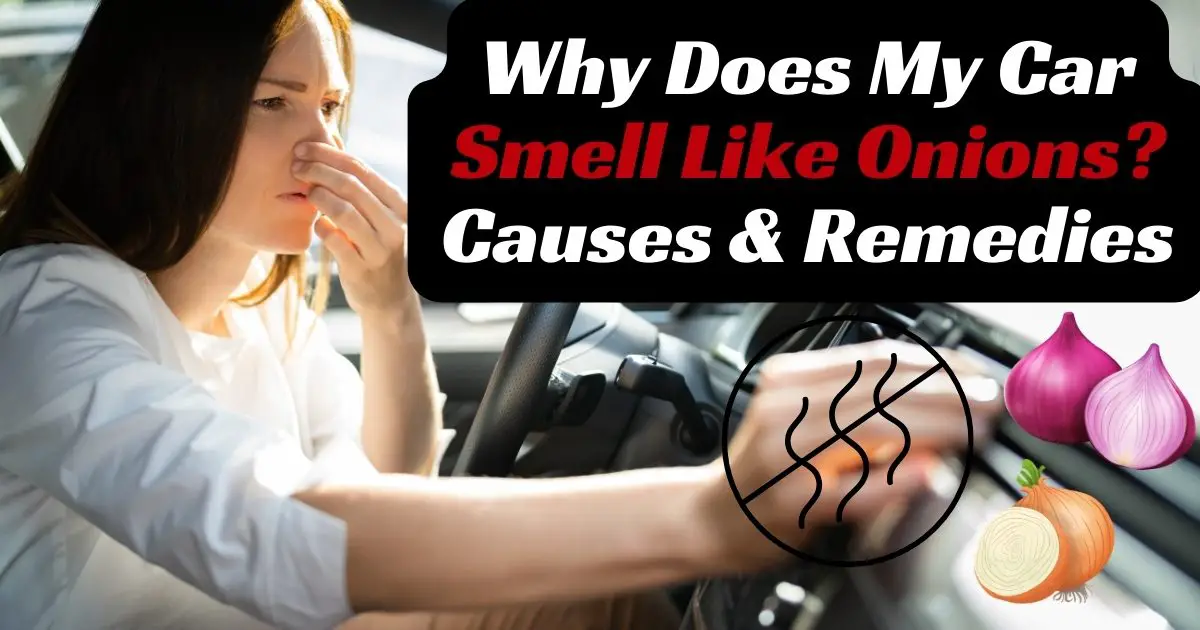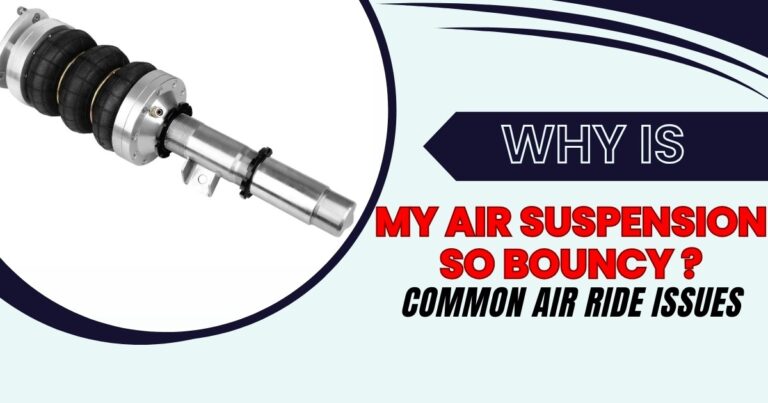Why Does My Car Smell Like Onions? Causes and Remedies
Cars typically have a neutral or slightly pleasant smell, depending on factors such as cleanliness and the presence of air fresheners. However, if your car smells like onions, it suggests that something unusual is happening.
Many car owners have encountered an onion smell in their cars, often without a clear explanation. While it may seem like a minor inconvenience, addressing the root cause is crucial for maintaining both comfort and safety while driving.
Why Does My Car Smell Like Onions?
The onion smell is not a common or typical scent associated with cars. This peculiar scent is characterized by a distinctive and overpowering onion-like odor, reminiscent of the smell of freshly chopped onions. It often fills the interior of the vehicle, making it difficult to ignore or mask with air fresheners.
Interestingly, while many people describe the odor as onion-like, others perceive it as garlicky or sulfuric. This variation in interpretation further complicates the task of identifying the exact source of the smell. Countless motorists have shared real-life experiences of encountering this peculiar scent in their cars, meaning the problem seems to affect car owners across the board.

Causes of Onion Smell in Car
When attempting to identify the root cause of the onion odor in your car, it’s essential to scrutinize several areas within the vehicle itself. These areas include the carpeting, upholstery, air conditioning system, and trunk spaces. Each of these locations has the potential to harbor and emit unpleasant smells, contributing to the overall odor issue. Common culprits of onion smell in cars include;
Engine Oil Leaks
Engine oil leaks are often caused by deteriorated gaskets or seals within the engine. Over time, these components wear out, allowing oil to seep out and accumulate on hot engine surfaces. When the oil comes into contact with these heated components, it burns off, releasing an unmistakable odor reminiscent of onions. This odor is a clear indication of engine distress and should prompt immediate action to prevent further damage.
Fuel System Issues
Fuel system issues can lead to the emission of an onion-like odor within the car. For instance, leaks or improper combustion within the fuel system can release vapors that permeate the vehicle’s interior, creating an unpleasant onion smell.
Fuel leaks can occur due to damaged fuel lines, faulty fuel injectors, or deteriorated seals, which allows fuel vapors to escape and circulate inside the car. Similarly, improper combustion, often caused by issues such as a malfunctioning oxygen sensor or a clogged fuel injector, can produce unburned hydrocarbons with a distinct onion odor.
Mold Growth
Moisture buildup in the ventilation system of a car can create a conducive environment for the growth of mold. But does mold smell like onions? Well, we’d say, it depends. Now, when the mold-causing microorganisms proliferate, they might emit musty odors reminiscent of onions, particularly when the air conditioning or heating is active.
Mold and bacteria thrive in dark, damp environments, and the ventilation system provides an ideal breeding ground. As air circulates through the system, it carries the odors produced by mold or bacteria throughout the car’s interior, making them noticeable to occupants.
Spoiled Food or Spills within the Car
Neglected food or beverage spills inside a car can lead to the development of an onion-like smell over time. When organic residues from these spills are left unattended, they become a breeding ground for bacteria and other micro-organisms.
As bacteria break down the organic matter, fermentation occurs, releasing foul-smelling compounds that contribute to the unpleasant odor. Additionally, the warm and confined environment of a car provides optimal conditions for the fermentation process to accelerate.
Chemical Reactions from Cleaning Products or Air Fresheners
The use of certain cleaning products or air fresheners in a car can inadvertently contribute to the development of an onion-like odor. Some of these products contain volatile compounds that can undergo chemical reactions when exposed to heat or sunlight, releasing onion odor. Additionally, overuse of these products can result in an overpowering scent that mimics the smell of onions.
How to Get Onion Smell Out of Car
Regular Inspection
Conduct routine checks of the engine, fuel system, and other vital components to detect leaks or malfunctions early on. Address any issues as soon as they appear to prevent the development of odors caused by engine oil leaks or fuel system problems.
Cleaning and Vacuuming
Clean the car’s interior thoroughly, including the seats, carpets, and any other fabric surfaces, using a mild detergent or upholstery cleaner. Vacuum the car’s interior regularly to help remove dirt, dust, and debris that can trap odors. Pay special attention to areas where spills or food crumbs may accumulate. In addition, clean spills and stains immediately to prevent them from becoming breeding grounds for bacteria and mold.
Steam Cleaning
Steam cleaning is an effective method for removing stubborn odors from upholstery, carpets, and floor mats in a vehicle. The high temperatures produced by steam are designed to penetrate deep into the fabric, lifting dirt, grime, and odor-causing particles. Additionally, steam’s high heat helps kill bacteria and mold, which are common sources of unpleasant smells. This method provides deep and thorough cleaning, leaving the interior of the vehicle smelling fresh and revitalized.
Using Odor Absorbers
Place activated charcoal bags, baking soda boxes, or coffee grounds in the car to absorb lingering odors. These natural remedies work by absorbing and trapping odor molecules without introducing additional chemical. Additionally, using odor-neutralizing sprays or sachets periodically can help freshen up the interior and maintain a pleasant scent.
Applying Specialized Cleaners
Consider using specialized automotive cleaners to target specific odors, such as those formulated for removing pet stains or food spills. Opt for natural or mild cleaning products that are safe for use in confined spaces.
Use air fresheners sparingly and choose ones with neutral or mild scents to avoid masking odors with strong fragrances. Ventilate the car thoroughly after using cleaning products or air fresheners to prevent the buildup of chemical odors.
Proper Disposal of Waste and Food Items
Dispose of waste and food items properly to prevent them from spoiling and emitting foul odors. Avoid leaving food or beverage containers in the car for extended periods, especially in hot weather, to prevent them from leaking or spoiling.
Concluding Thought
Maintaining a fresh and pleasant driving environment is not just a matter of comfort but also a crucial aspect of safety and well-being. Unusual odors in cars serve as early warnings of potential issues that, if left unaddressed, can escalate into more significant problems. If your car consistently smells like onions without any apparent cause, it could indicate a more significant issue. In any case, if you notice unusual odors in your car, it’s a good idea to investigate further to ensure there are no underlying problems that need attention.






